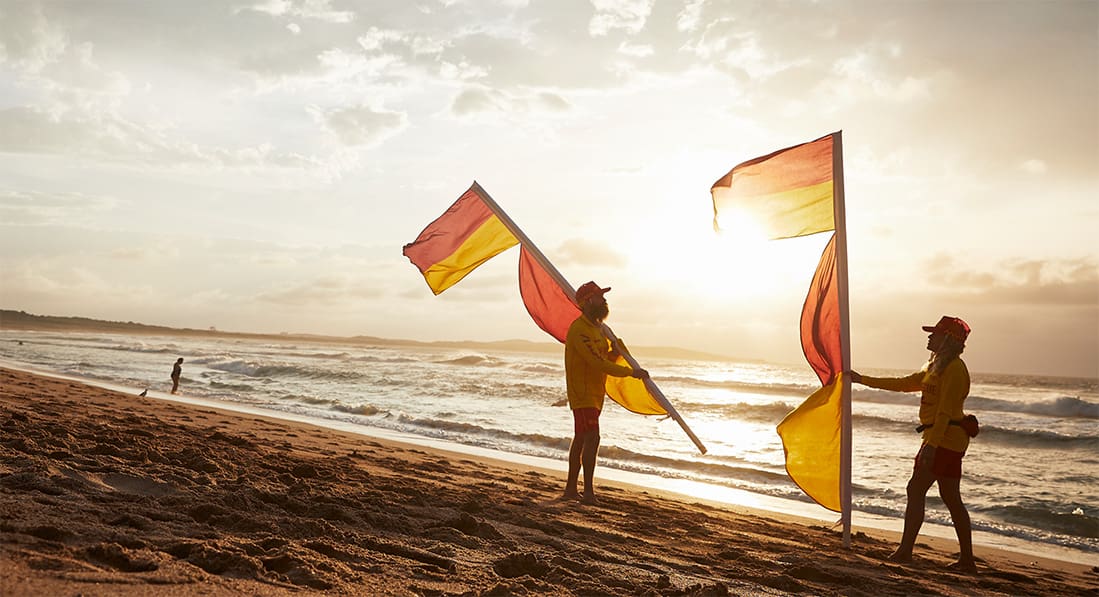Beach days are the best days. Fun in the sun. Sand between your toes. Smiling faces splashing in the waves, building sandcastles, throwing frisbees and playing beach cricket. But wherever there is water there is also danger. Here are five surf safety tips to ensure you enjoy your days at the beach.
Choose a patrolled beach and swim between the flags
Wherever possible, choose a patrolled beach. There’s nothing more comforting than knowing there is someone on hand to race to the rescue if needed. Lifeguards assess surf conditions and choose the safest spot for swimming each day. That’s why it’s important to swim between the red and yellow flags. This area is also constantly monitored for swimmers in difficulty. If you’re on an unpatrolled beach, check for safety signs. They will warn you of potential dangers on the beach.
Find your nearest patrolled beach by visiting beachsafe.org.au
Keep an eye out for rips
Rip currents are one of the biggest hazards on Australian beaches. It’s important to be able to recognise a rip, especially if you’re on an unpatrolled beach. Learn what to look out for and teach your kids too. It’s important to remember that rips can shift location and are not always easy to see, so even if it’s a beach you visit regularly, always check before entering the water.
Learn how to spot a rip by watching this Surf Life Saving Australia video and how to survive a rip by reading this factsheet.
How to attract help from the water
Even the best swimmers can sometimes need help. If you find yourself in trouble in the water, it’s important to try to stay calm. Attract the lifeguard’s attention by raising your arm and waving it from side to side. When you can see they are on their way, float on your back to conserve your energy until they arrive.
How to deal with marine stings
From bluebottles to box jellyfish and more, the sea is home to a number of creatures that can turn laughter to tears with a single sting. Your first instinct might be to rinse the affected area with fresh water—DON’T! This is where knowing some basic first aid can help you minimise their pain. Neutralise the sting by applying vinegar or seawater as freshwater releases more toxins.
Find out how to manage all types of marine stings here.
How to stay sun safe
The best beach days are hot and sunny. That means it’s important to protect yourself from harmful UV rays. Everyone knows you should slip on a rashie, slop on some sunscreen, slap on a hat, slide on some sunnies and seek shade, but it’s important to stay hydrated too. Be sure to take along plenty of water and a sun tent or beach umbrella to provide some shade. And don’t forget to reapply sunscreen throughout the day.
